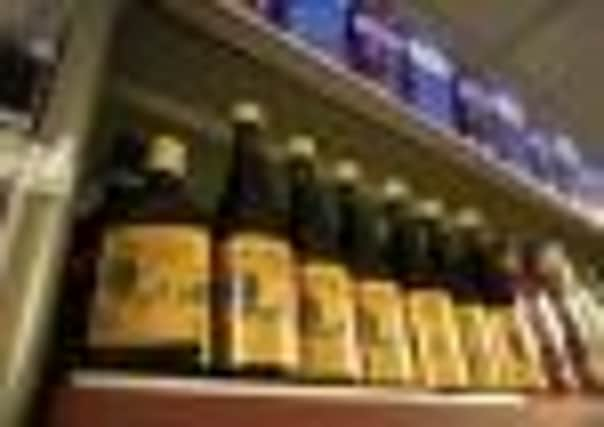Labour seek ban on alcohol ads in public places and problem drinkers


English-style Drink Banning Orders could also be introduced which could see problem drinkers barred from going into certain pubs, along with a crackdown on Buckfast.
It comes as legal experts warned that SNP plans for a minimum price, set to be backed by MSPs today, could still end in a court battle.
Advertisement
Hide AdAdvertisement
Hide AdLabour is opposed to SNP plans for a minimum alcohol price, but health spokeswoman Jackie Baillie insists the measures set out yesterday were not an alternative to the Scottish Government’s policy.
“There isn’t a magic bullet to tackle Scotland’s problem with alcohol which is why we’ve brought forward a comprehensive series of measures which are not addressed by the government bill. Even supporters of the government have said that they would like to see much more being done, so we’re hoping to widen the debate.”
The party’s proposed Alcohol (Public Health and Criminal Justice) (Scotland) Bill is split between health and criminal justice measures.
The advertising ban would cover all public areas which the Scottish Parliament has control over, including billboards, bus shelters, public transport and on-screen cinema advertising for all under-18 certified films. But sports grounds, which require an entry fee, would be exempt.
The party will also close the current loophole on bulk-buy alcohol promotions which allows supermarkets to sell a 20-can pack at a lower price by simply not stocking single cans of that product.
The caffeine limit in Buckfast, and all alcoholic drinks, will be set at 150mg – almost half the current level. Highly caffeinated drinks have been linked with violent crime.
Labour’s plans will need the support of at least one other party in parliament and the Nationalists have pledged to consider them.
But SNP health committee deputy convener Bob Doris said: “These proposals do not change Labour’s ridiculous stance on minimum pricing.”
Advertisement
Hide AdAdvertisement
Hide AdThe minimum pricing proposal is likely to be endorsed by MSPs at the bill’s first parliamentary stage today and will come into effect later in the year. Health secretary Nicola Sturgeon is determined to crack down on cheap supermarket wines and ciders which can often cost less than the price of water.
But Jim McLean, convener of the Law Society of Scotland’s competition law committee, said it will need to be scrutinised to ensure that it complies with EU Treaty provisions on the free movement of goods and duty directives.
“The Court of Justice of the European Union could take the view that introducing a minimum unit price in Scotland would disrupt cross border trade to a greater extent than really necessary to achieve the Scottish Government’s legitimate health objective,” he said.